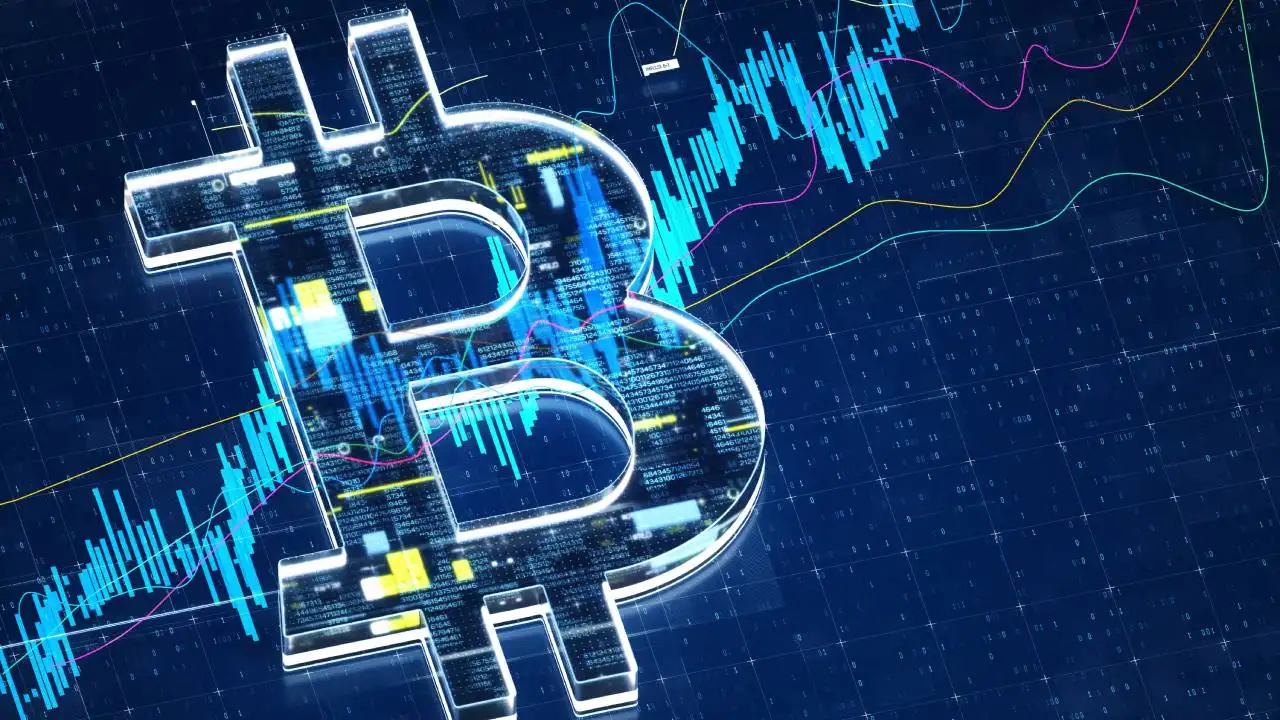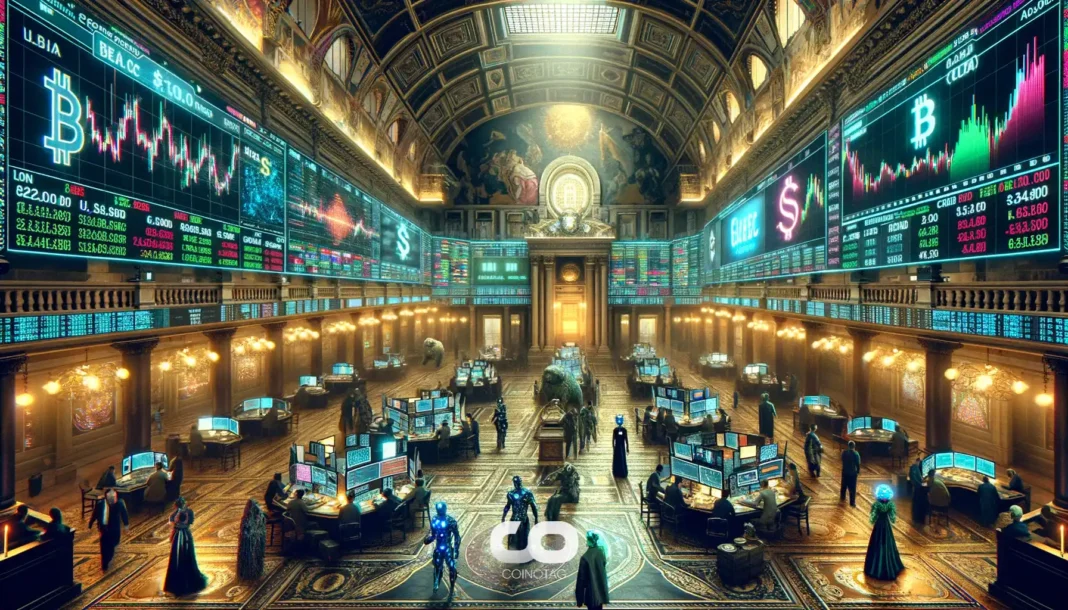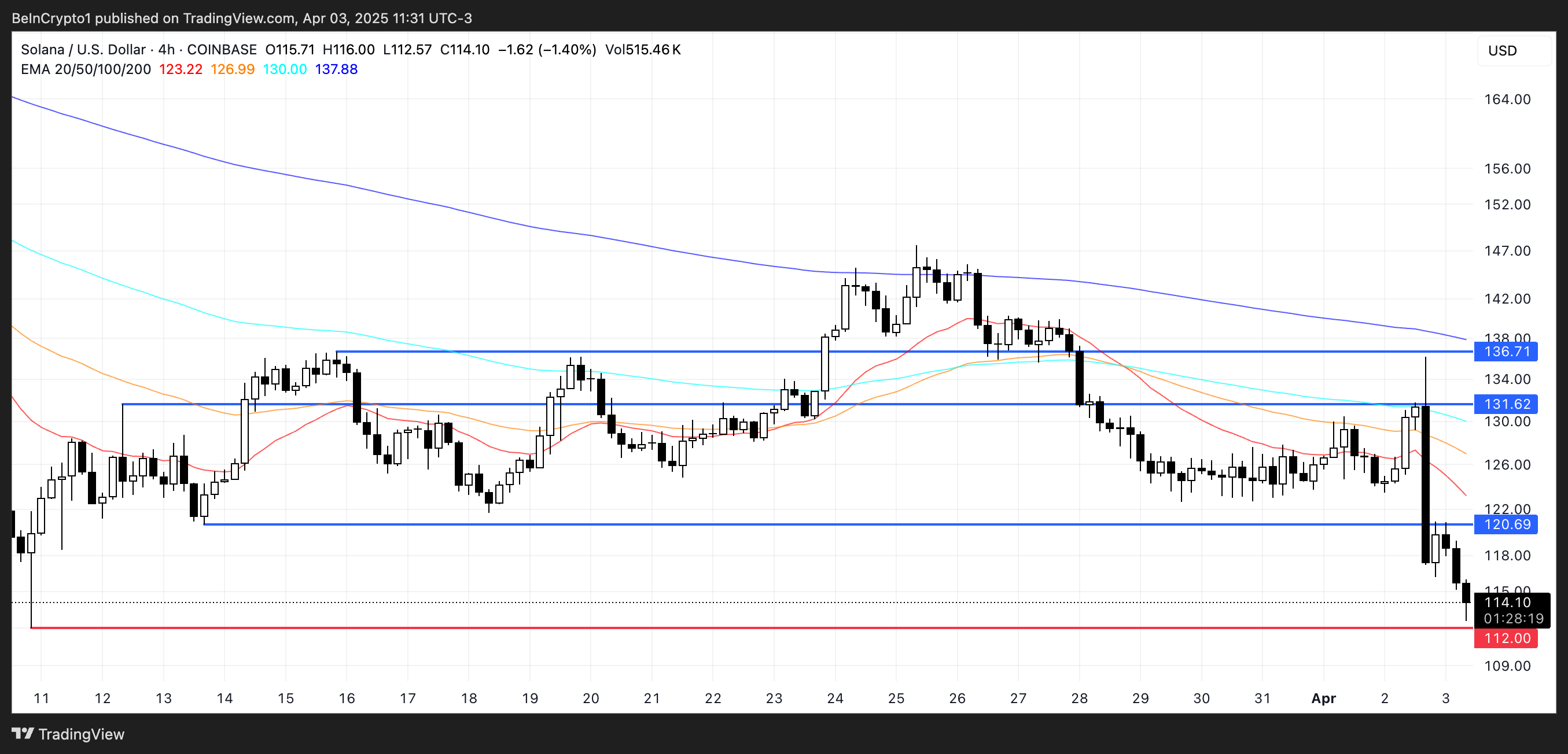News
Stay up-to-date on the most trending topics in crypto with our professional and in-depth news.
1Bitget Daily Digest (April 3) | Trump's tariff orders spark market declines; Fidelity adds crypto to retirement plans2On-Chain Data School (Part 2): The Evergreen Profitable Hodlers, What Was Their Cost Basis for Buying BTC?3PayPal Activates Support for Solana and Chainlink, Will SOL and LINK Price Recover?

Bitcoin ETFs Sees Nearly $100M Outflow After Trump’s Tariff News
Cryptotimes·2025/04/04 20:55

Crypto Price Today (April 4, 2025): Bitcoin Visits $81k Low, Altcoins See Drastic Drop
Cryptotimes·2025/04/04 20:55

Cardano Surpasses Bitcoin and Ethereum in Institutional Inflows
Cryptotimes·2025/04/04 20:55

Bitcoin Power, $MSTR Rises While U.S. Stock Market Crash!
Cryptotimes·2025/04/04 20:55

ATOM at a Crossroads: Will Breaking $5.20 Trigger a 50% Rally or Another Rejection?
Cryptonewsland·2025/04/04 20:33

Over 170 Million LINK Tokens Sold by Whales: What This Means for You
Cryptonewsland·2025/04/04 20:33

Crypto News: Bitcoin Dips Below $85K, Ethereum Slides, XRP Shows Volatility
Cryptoticker·2025/04/04 18:22

XRP Sees Downward Pressure Amid $1.02B Token Unlock and Significant Decline in Network Activity
Coinotag·2025/04/04 09:55

Wormhole Faces Market Indecision as Breakout Attempts Near Key Resistance Level
Coinotag·2025/04/04 09:55

Solana Faces Continued Bearish Pressure, Eyes $112 Support as Selling Intensifies
Coinotag·2025/04/04 09:55
Flash
- 22:28Barclays: cuts Fed's 2026 rate cut forecast to two from threeBarclays: cuts expectations for the number of Fed rate cuts in 2026 from three to two, each by 25 basis points. Economist Marc Giannoni and others now still expect the FOMC to cut rates this year by 25 bps in June and 25 bps in September, but such a rate path is highly uncertain.
- 22:27UNCTAD warns of escalating global trade tensionsIn a statement released on 4 April local time, the United Nations Conference on Trade and Development (UNCTAD) noted that global economic growth could decline further as major economies are set to impose new tariffs. In a low-growth, highly indebted global economy, tariff hikes could weaken investment and trade flows, adding uncertainty to an already fragile environment. This could erode confidence, slow investment and threaten development gains, especially in the most vulnerable economies. For businesses and policymakers, trade and investment unpredictability and uncertainty are becoming serious obstacles to growth and planning. Many low-income economies are now facing a deteriorating external environment, unsustainable debt levels and slowing domestic growth.
- 21:41US stocks experience bloodiest week in five years as $3 trillion in market value evaporatesMajor U.S. stock indexes posted their biggest one-week losses since March 2020 after Trump unveiled a plan for tariffs that exceeded expectations, sparking concerns about global growth, according to foreign media reports. ‘The reason for today's stock market selloff is that there's a real lack of buyers,’ said Carol Schleif, chief market strategist at BMO Private Wealth, adding that people have watched to see how the initial (trade) talks/retaliation go and don't know how to assess how much of a drop would be considered ‘enough.’ The Dow Jones is now down 14.9 per cent from its record close and the S&P 500 is down 17.4 per cent from its record close. The Nasdaq is down 22.7% from its record close on 16 December last year and has confirmed it is in a bear market. U.S. stocks evaporated more than $3 trillion in market value across the city today. On Friday, Federal Reserve Chairman Jerome Powell also gave no short-term answers on how tariffs will affect monetary policy, saying, ‘We face a highly uncertain outlook, with rising risks to both unemployment and inflation.’ In addition, other stock markets in the Americas were dragged down, with Canada's Toronto stock index confirming that it had entered a correction, closing down more than 10 per cent from its all-time high set on 30 January. Argentina's main stock index was down 7.4 per cent at the initial close. Mexico's and Brazil's main stock indices sank more than 5 per cent and 3 per cent, respectively.